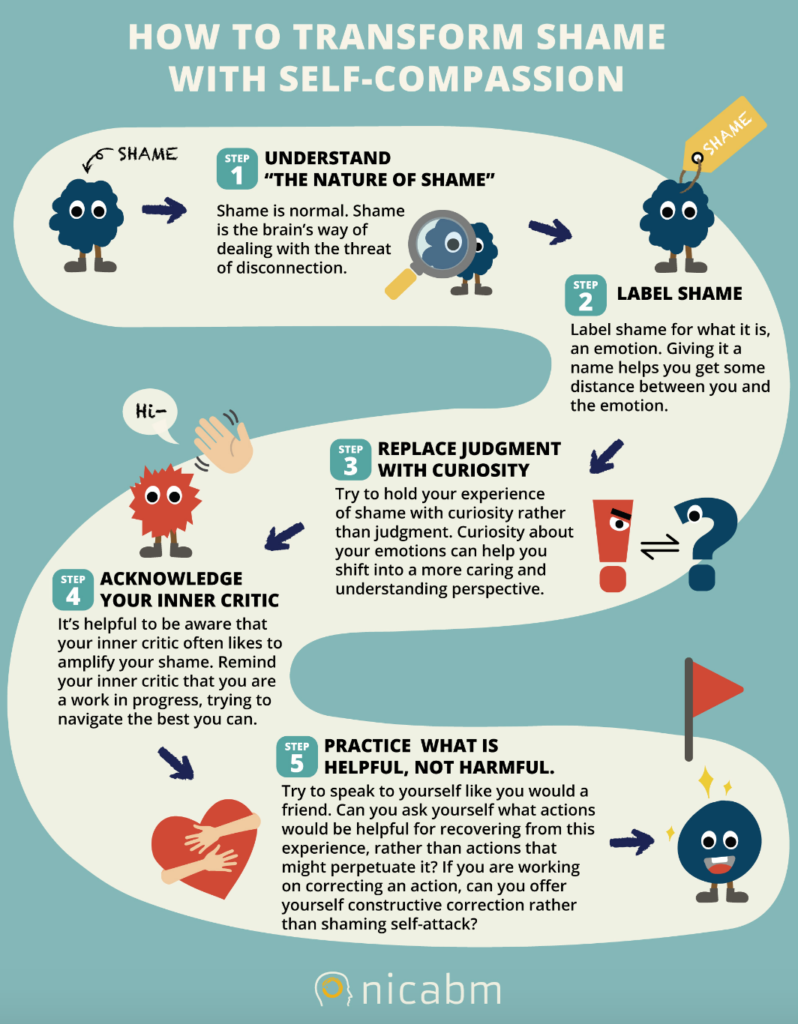了解羞耻

Table of contents
这篇文章将帮助你理解羞耻感、背负的羞耻感,以及为什么人们会因为他人而感到羞耻(二手羞耻感)。
当一个人认为自己的尊严和价值在某种程度上被贬低时,就会产生羞耻感。
感到羞耻的人认为自己有问题,因此感到羞耻与感到有价值恰恰相反。
羞耻感与尴尬和内疚密切相关。
尴尬是指我们认为自己刚才的行为被他人认为是不恰当的,内疚是指我们违反了自己的重要价值观,而羞耻则是指我们认为自己受到了侮辱或变得不值得。
耻辱和虐待
羞耻感被称为一种社会情绪,因为它通常出现在人际交往中。1 当我们认为自己降低了在他人眼中的价值时,就会产生羞耻感。 其他人 .
我们相信,别人对我们的负面看法并不是因为我们做了什么,而是因为我们是谁。 在我们的内心深处,我们认为自己是有缺陷的。
童年时期遭受过身体或精神虐待的人更容易感到羞耻,因为他们认为如果别人对他们不好,他们就一定有问题。 在童年时期,我们没有其他方法来解释自己遭受的虐待。
例如,一个经常受到父母虐待的孩子,最终可能会认为自己有问题,从而产生羞耻感,稍有社会失败的感觉就会引发这种羞耻感。
一项为期 8 年的纵向研究表明,严厉的养育方式和童年时期的虐待行为可预测青少年的羞耻感。
老师、朋友和其他社会成员的虐待都会让孩子感到羞耻。
了解遗留下来的耻辱
任何让我们感到不值得的事件都会引发我们的羞耻感。 但是,如果我们已经从童年时期就有了羞耻感,我们就更容易感到羞耻。 我们更容易感到羞耻。
羞耻感有时会在一些情况下被激发,这些情况会让我们想起过去的一些类似的羞耻经历,在这些经历中,我们曾感到羞耻。
例如,当一个人在公开场合念错一个单词时,他可能会感到羞愧,这可能是因为在他过去的某个地方,当他念错同一个单词时,他曾感到羞愧。
See_also: 3 常见手势群及其含义另一个人如果没有这样的经历,也不会因为犯了同样的错误而感到羞耻。
进化、耻辱和愤怒
从进化论的角度看,个人在社会中的最佳策略应该是获得群体成员的青睐和认可。
因此,我们进化出一种心理机制,力求将羞耻的代价降到最低。
See_also: 什么是心理学中的似曾相识?例如,羞耻感的厌恶性促使人们努力终止羞耻感,并向他人隐藏受损的自我。 这包括避免目光接触和其他形式的回避性肢体语言,甚至干脆逃离羞耻的环境。
尽管我们努力隐藏自己的羞耻感,但如果别人真的目睹了,我们就会有动机去伤害那些目睹了我们所感受到的羞辱的人。
这种从羞耻到愤怒的情绪转变有时被称为 "羞辱的愤怒 "或 "羞耻-愤怒循环"。
因他人而感到羞愧
虽然听起来很奇怪,但有时我们会因为别人而不是自己所做的事情感到羞愧。
我们的社会、城市、国家、家庭、朋友、最喜欢的音乐、最喜欢的菜肴和最喜欢的运动队,所有这些都来自我们的扩展身份。
我们将自己的形象与它们联系在一起,因此影响它们的事情也会影响我们自己的形象。
既然我们把所有这些东西都视为自己的一部分,那么如果我们的延伸身份做了我们认为可耻的事情,我们也会感到可耻。
这就是为什么当亲朋好友做出可耻的行为时,人们会感到羞愧的原因。
如果同胞或社区成员犯下暴行,人们会 "垂头丧气",有时甚至会替他们道歉。
参考资料
- BARRET, K. C. (1995).羞愧和内疚的功能主义方法。 自我意识情绪:羞愧、内疚、尴尬和自豪的心理学 , 25-63.
- Stuewig, J., & McCloskey, L. A. (2005)。《虐待儿童与青少年的羞耻感和负罪感之间的关系:抑郁和犯罪的心理路径》(The relation of child maltreatment to shame and guilt among adolescents: Psychological routes to depression and delinquency. 虐待儿童 , 10 (4), 324-336.
- Scheff, T. J. (1987). The shame-rage spiral: A case study of an interminable quarrel.

